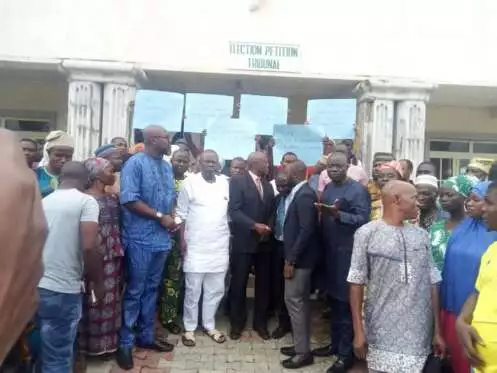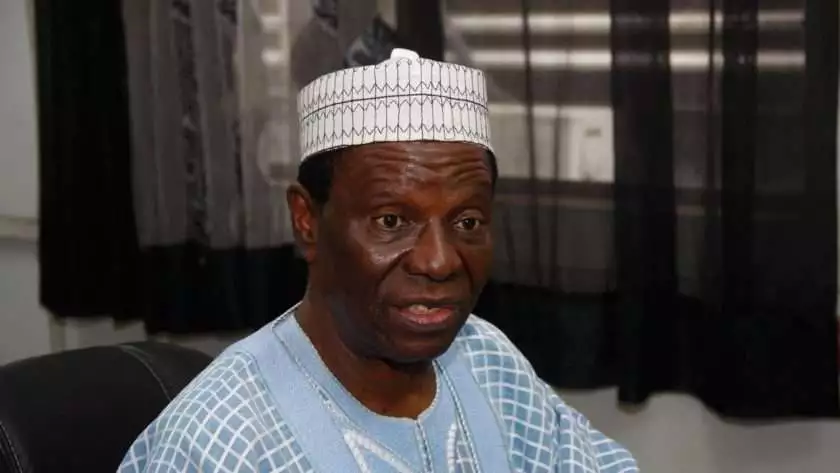The convention since the return of Democracy to Nigeria in1999 has been that once an election result has been declared by the Independent National Electoral Commission INEC, it can only be looked into by the relevant election tribunal. The power is expressly conferred by the Constitution of the Federal Republic of Nigeria, 1999 as amended. According to Section 285 of the said constitution, election tribunals are empowered to hear and determine petitions as to whether a person has been validly elected into non-appointive offices under the government of Nigeria at the Federal and State levels. The arrangement is rational because it creates a mechanism of checks and balances in an election process. Although the settlement of disputes is ordinarily the constitutional duty of the judiciary, to bring the courts, a different body from INEC, to review the conduct of an election is obviously a right step to take.

Whether our many election tribunals have added value to our elections or not is a contentious issue as those whose cases are upheld loudly eulogize the tribunals, while several losers pick holes in the decisions of the tribunals. Interestingly, such objections are quite often transparently reasonable leaving so much doubt about our temple of justice. Generally, Nigeria has many impartial judges but if the truth must be told, clean judges have for long been too few in matters of elections. As far back as 1998, the Sani Abacha administration had to suspend all the judgments of the election tribunals because of proven allegations of bribe taking and even confessional statements by some members of the tribunals who were assembled to deal with petitions arising from the transition to civil rule elections. Painfully, the situation whereby many people use the judiciary to win elections is yet to change. The Edo governorship election tribunal of 2016 for example, reportedly insisted that over-voting can only occur if recorded votes exceed the total number of registered voters and not when the number of voters accredited is exceeded by the number of votes recorded.
Consequently, when some people imagined a few days ago that the election tribunal to deal with the recent governorship election in Osun state may have been disbanded, not many saw them as alarmists considering how some of our tribunals usually function. Their fear that the locking-up of the venue of the tribunal may be an attempt to use delay tactics to exhaust the days legally available to the tribunal cannot be described as unfounded. It has happened before. On October 21, 2012, exactly 6 years today, this column had cause to review how the judiciary handled the outcome of one state governorship election of that year. To refresh the memories of our readers, let us recall that article whose title was “Using the Judiciary to win elections in Nigeria.”
The state concerned was Adamawa whose governorship election was held on February 04, 2012. According to INEC, the contest was won by the state governor, Admiral Murtala Nyako. The main opposition party in the state at the time, the Action Congress of Nigeria (ACN) presented a petition to the election tribunal challenging the said victory but the tribunal upheld the declaration of INEC in favour of Nyako. ACN immediately filed an appeal against the ruling of the tribunal but rather than deal with the case expeditiously in view of Section 285 of the Constitution of the Federal Republic of Nigeria 1999, which provides that an appeal from a decision of an election tribunal must be heard and disposed off within 60 days from the date of the judgment of the tribunal, the Court of Appeal kept mute and did nothing. At the end of August 2012, when the case had become over-ripe for hearing; the ACN alerted the nation on the grave implications of the failure of the Court of Appeal to act. Again, nothing was done.
On September 18, 2012 when the deadline for handling the case was only 4days away, the Judiciary was pressurized to hurriedly assemble a panel which was only able to arrive in Yola; the state capital, some 48 hours to the deadline. 24 hours later, the panel, like a magician; sat, wrote and delivered a judgment against the petitioner. The Adamawa case was therefore unfortunate as the Court had to be compelled to begin the process of playing the role for which it was set up. This must have sadly put several negative thoughts in the minds of people.
It is a great pity that whenever our nation takes positive steps to address its problems, there are usually some societal institutions and their operatives who always thwart any such design. The purpose of stipulating a time frame for election petitions was to halt the practice whereby some of the parties conjure several technicalities to prolong a case for longer than makes sense. Now that people are finding ways to quickly exhaust the time allowed for election while the issues at stake are yet to be resolved, we cannot blame those who became apprehensive over the locking-up of the venue of the Osun Tribunal. The Supreme Court has since determined that based on the wording of the law, an election tribunal which does not deliver judgement after 180 days of the beginning of a petition is overtaken by time, no matter the cause of the delay. Whereas that decision meets the letter of the law, it cannot be said to also meet the spirit of the law. Accordingly, defendants ought not to be allowed to unnecessarily waste time to frustrate a case; it is unjust and indeed ungodly for the Court to aid any delay.
The locking-up of the Osun Tribunal last week which the authorities now say was to enable a reorganisation of the tribunal is wrong. A new tribunal should have been constituted before disbanding the old one. Even the movement of the venues of election tribunals here are there because of the likely fear that the members could be harmed is in our view unnecessary. Security Agencies that usually send thousands of operatives to secure an election ought to be able to send just one hundred operatives to secure a tribunal set up to conclude the process of the same election. It is important to ensure that our election tribunals are fair and just and are so seen; otherwise a loss of faith in the judiciary could encourage self-help with its aftermath of political violence. Too much was publicly seen to have gone wrong with the Osun election; the controversies should be resolved forthwith before we begin to mouth the attainment of free, fair and credible elections in Nigeria.
Discover more from The Source
Subscribe to get the latest posts sent to your email.








